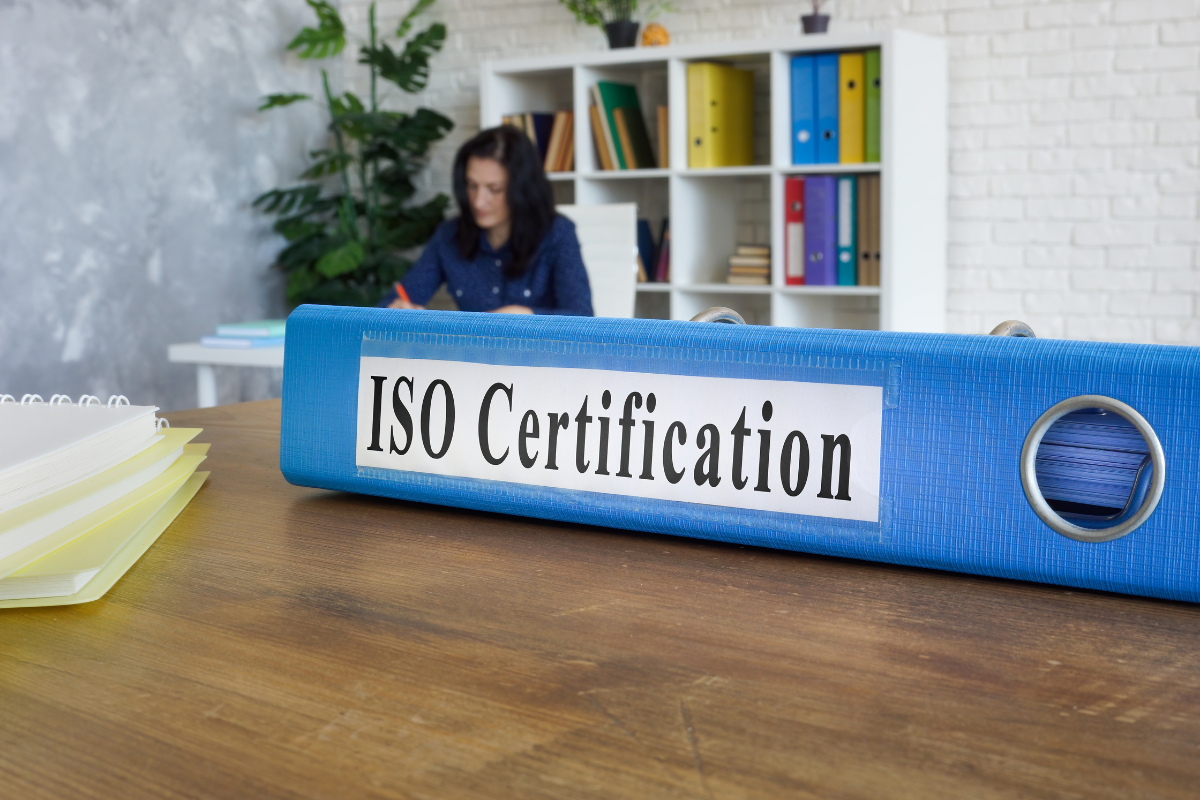Renovation Contractor Singapore: Achieving Peak Performance Through Compliance and Certification

Lately, Singapore’s renovation scene has been booming. There’s been significant growth due to a hot real estate market and homeowners wanting custom living spaces. It’s crucial to pick a contractor who knows their stuff and follows the rules. This keeps investments safe and ensures everything is up to code. This piece explores what makes Singapore’s renovation industry tick. It highlights why choosing the right pros for the job is crucial and sets up what we’ll discuss next.
The Legal Framework for Renovation Contractor Singapore
Licensing Requirements
In Singapore, it’s a must for renovation contractors to have official licenses. This rule ensures they’re up to scratch with safety, quality, and trustworthiness standards the government sets. Getting this license takes time and effort. A deep dive into the contractor’s skills, background in the field, and how well they stick to local rules. They need to hand over specific documents and ace some inspections, too.
To keep their licensed status shiny and valid, these contractors must do more than sit back. They’ve got ongoing hoops to jump through—like renewing their license now and then, which might mean more checks or keeping pace with new laws.
Building and Construction Authority (BCA) Regulations

The Building and Construction Authority (BCA) is a big deal in renovating in Singapore. It sets high standards for quality and safety for consumers to look out for. BCA’s rules touch everything from how well things are built to ensuring buildings stay up as they should and following design plans closely. Contractors have to adhere to these tough guidelines and standards tightly. Why? Well, it’s not just about dodging fines or legal trouble; it boils down to keeping clients safe and happy.
Health and Safety Standards
Singapore’s Workplace Safety and Health (WSH) rules are strict. They demand that people fixing up places follow tough safety steps to prevent accidents and injuries on job sites. This means they’ve got to stick to top-notch safety habits. Things like wearing the right gear, checking regularly for risks, and making sure all equipment is used properly fall under this.
Those in charge of renovations must also ensure their teams know what’s up with these procedures. Training sessions help spread awareness about staying safe while working according to WSH standards and encourage a “safety first” mindset among everyone involved.
Environmental Regulations
In Singapore, those who renovate buildings have to follow green rules. These rules ensure that building work doesn’t harm the planet too much. It’s all about keeping our environment safe and sound. This effort includes making less trash and recycling more so we don’t fill up landfills as quickly. They also focus on using renovation methods that save energy.
This means lower electricity bills and fewer harmful gasses in the air. When contractors adhere to these eco-friendly guidelines, they’re doing their part for sustainable growth. This approach shows how serious Singapore is about looking after nature while still growing and developing.
Certifications for Peak Performance

ISO Certifications
ISO certifications are like the gold seal of approval for renovation contractors. They show that a business meets top-notch international standards for quality and safety. This boosts trust with clients big time. To get this certification, contractors go through tough checks on how they run their operations.
They need to stick to specific standards and always look for ways to improve—this might even mean having outside experts come in to look. For businesses and their customers, these certifications bring lots of perks:
- Products turn out better.
- Things run more smoothly.
- It puts them ahead in the race against competitors.
- It all adds up to aiming high in what they make or do and ensuring customers are happy.
Green Mark Certification
Getting to grips with Green Mark standards means getting a handle on the push for buildings that are kinder to our planet. This approach isn’t just about throwing up structures; it’s about thoughtful design and building methods that dial down harm to the environment. For contractors aiming for Green Mark certification, there’s a clear path they need to tread. It involves ticking boxes in areas like energy use, water conservation, protecting nature, and ensuring indoor spaces are healthy.
When builders nail this process and pass an evaluation by the Building and Construction Authority (BCA), they earn their Green Mark badge of honor. What does this get them? Well, quite a bit actually: props for being eco-friendly champions are one thing, but sweeteners from government schemes might also be on offer—not forgetting how much clients today want green options when choosing who builds their projects.
BizSAFE
The BizSAFE program, led by the Workplace Safety and Health (WSH) Council, encourages companies to improve workplace safety and health. It’s a five-level certification that follows a step-by-step process. It starts by getting management on board with safety. Then, it moves through managing risks and achieving excellence in WSH systems.
Getting that BizSAFE stamp does more than make workplaces safer; it shines up a company’s image big time! Plus, employees feel better working there knowing they’re safe, which is great for their morale. And let’s not forget – this commitment also opens doors to new business chances.
Other Relevant Certifications
Contractors aiming to stand out can benefit from niche certifications. These are special badges of honor in areas like electrical work, plumbing, or energy management. They shout about a contractor’s deep knowledge and commitment to the best practices in their field. Keeping up with ongoing education is key, too. It helps contractors keep pace with new tech advancements, rule changes, or fresh industry methods.
This ensures they stay ahead of the game and meet all necessary standards. By getting these specialized certifications, contractors prove their dedication to top-notch quality, safety, and eco-friendliness. This approach opens doors, attracting more clients looking for excellence and paving the way for bigger projects.
Challenges and Solutions in Compliance and Certification

Common Compliance Challenges
Getting a handle on compliance means tackling the wide range of laws and rules that affect different industries. It’s easy to feel swamped by it all. Keeping up with new regulations is key since they can pop up out of nowhere, shaking up how businesses run and plan their compliance game.
Then there’s the money part—trying to keep costs down while ensuring an organization follows all these rules isn’t simple. Staying fully compliant comes with a price tag, but it’s crucial for dodging fines and keeping a good name in the industry.
Certification Challenges
Getting certified can feel like climbing a mountain because of all the hoops to jump through. Think through tough rules, lots of paperwork, and stick to certain standards. It’s no small feat for companies! They have to pour time and resources into getting ready for this journey. And that’s not even touching on how hard it is to get everyone in the company on board with changes. Success in certification means convincing staff and bosses that adapting new ways of doing things is worth it.
Case Studies: Success and Failure
Success stories in compliance and certification often highlight the need for a committed team with a solid plan. These examples show how companies can meet tough standards and boost their place in the market at the same time. On the other hand, tales of failure usually point to an underestimation of regulation complexity or what it takes to comply.
Such mistakes lead to hefty fines and harm reputations. To tackle these hurdles, effective strategies focus heavily on education and training. They also foster a workplace culture where adhering to rules and getting certified is seen as key to business triumphs.
Best Practices for Ensuring Compliance and Achieving Certification
Cultivating a mindset focused on compliance is key for any organization. It creates an atmosphere where following rules and standards becomes part of the everyday workflow and choices. By implementing solid project management tactics, navigating through the maze of compliance and certification becomes smoother. This ensures projects wrap up as planned—on schedule, within budget limits, and hitting all required marks.
It’s also vital to keep pushing for better ways to do things while keeping tabs on what’s new in industry norms. Staying agile lets organizations adjust when regulations shift without falling behind or getting too comfortable with how things are currently done.
The Role of Technology in Enhancing Compliance and Certification

Technological Tools for Compliance Management
Software and apps focused on legal and regulatory compliance are changing the game for businesses. They’re making it easier to meet important standards, smoothing out operations, and guaranteeing precision. By automating these compliance tasks, mistakes made by humans drop significantly. Plus, there’s a huge saving in time and resources that used to go into managing compliance manually.
The perks of using technology to handle compliance can’t be overstated: better efficiency, more accurate results, and staying nimble enough to effortlessly keep up with any changes in regulations. For today’s companies aiming to stay ahead of the curve, this tech has become absolutely essential.
Digital Certification Processes
Moving to digital certifications is a big deal. It’s all about swapping old-school paper for slick electronic systems. This change makes life easier for both organizations and individuals. Thanks to technology, the whole certifying process gets a makeover. Applying, checking documents, and getting certificates happen with clicks instead of paperwork.
This cuts down on admin headaches and speeds things up, too! Keeping records in digital form means everything is at your fingertips—safe, easy to find, and simple to update when needed. In short, the world of certification just got way more efficient thanks to going digital.
Technology in Training and Development
Digital platforms are now key to ongoing learning and skill-building. They offer flexible, easy-to-access options for those looking to boost their professional abilities. Virtual reality (VR) and augmented reality (AR) are also changing the game in safety training. These technologies create immersive experiences that mirror real-life situations.
This makes it easier for learners to grasp concepts and remember them longer. Using tech this way helps keep employees engaged and growing professionally. It also encourages a workplace culture where everyone always aims higher, seeks new knowledge, and embraces innovation.
Innovative Practices for Sustainable Renovation
Green tech is on the rise in renovation work, thanks to a worldwide effort for sustainability and saving energy. Think smart homes and buildings – they’re leading the charge with cool tech that cuts down on power use while making living spaces more comfy through clever systems. What is the outlook for eco-friendly renovations? It’s looking bright! Innovations keep coming, all focused on lessening our environmental footprint without skimping on how things look or work.
Selecting the Right Renovation Contractor Singapore
Importance of Compliance and Certification in Your Selection
Choosing the right renovation contractor in Singapore is a big deal. It’s about ensuring they stick to the rules and have the right paperwork. This keeps everything above board, ensuring quality work for any project. Watch out for warning signs like missing licenses, bad reviews on following regulations, or needing more insurance.
It’s smart to ask contractors if they’re up-to-date with their compliance and certifications. This helps determine if they’re good at what they do and serious about their business. Getting this step right paves smooth sailing during your renovation journey.
Understanding Quotes and Contracts
Taking apart quotes piece by piece is key to really getting what needs to go into a renovation. It’s all about being clear and avoiding those surprise bills later on. Why are detailed contracts so important? They lay everything out: what work will be done, when payments need to happen, and how any disagreements will be sorted.
This sets up a strong base for the whole project. When it comes time to talk terms, focusing on rules and ensuring things are above board can safeguard interests. It means insisting contractors stick closely to plans and follow all the legal stuff.
Checking References and Past Work
Understanding how reliable and good a contractor is means digging into their references. It’s key to hear from those who’ve hired them before. But it’s about more than just how nice the work looks. One should also see if they can stick to deadlines, keep within budget, and follow through on what was asked of them. Looking up online reviews and testimonials helps, too. They give a wider view of what people think about the contractor’s work history and reputation.
Making the Final Decision
Finding the right renovation contractor is all about striking a balance. It’s important to weigh cost, quality, and compliance carefully. This ensures that good value is obtained without skimping on standards or breaking any laws. Also, remember how crucial it is to get along with your contractor. A solid relationship makes for easier talks and can lead to project success.
Before anyone puts pen to paper on that contract, there are some must-checks: Are their licenses up-to-date? Do they have insurance? What do past clients say about them? And let’s not forget a clear plan of action for the work ahead – this paves the way for smooth sailing during renovations.
Future Trends in the Renovation Industry

Emerging Technologies and Their Impact
Cutting-edge digital gadgets and clever tech are now key players in makeover projects. They bring a level of accuracy, speed, and budget-friendliness that was once just wishful thinking. With AI, VR, and IoT stepping onto the scene in renovations, getting through compliance checks and certifications is becoming smoother, with fewer human mistakes.
As things change fast in this field, those working within it must keep their eyes open for new tech trends. Staying up-to-date could mean staying ahead of the competition.
Sustainability and Green Building Practices
Sustainability is getting more attention in the renovation world. Society’s push for being kinder to our planet and tough new rules are reasons. Contractors who use green methods and materials do good for Earth and stand out in a market that loves eco-friendly choices. As laws on protecting the environment get stricter, it’ll be crucial for remodelers to meet these standards. Getting certified in green practices will become key for those businesses wanting to stay ahead.
The Evolution of Client Expectations
The world of renovations is changing fast. Clients now want projects that are top-notch, tailored to their tastes, and finished quickly. To meet these demands, contractors must get creative with new solutions while ensuring they’ve got the right skilled people on board. This way, personal touches don’t mean a drop in quality or speed.
For companies looking to succeed in this ever-evolving renovation scene, it’s all about being flexible and putting clients first. Adapting how they do business to focus more on the client’s needs will be key for those aiming high.
Global Influences on Local Markets
Worldwide movements, like tech progress and the push for green living, are shaking things up in local makeover scenes everywhere. Singapore is feeling it, too. This situation pushes companies there to step up their game big time. If they start playing by international rules of excellence, Singapore’s fix-up biz could shine brighter.
Developing a global mindset helps these businesses stay one step ahead. They’ll see new trends coming from miles away and grab onto fresh ideas faster than rivals can blink.
Conclusion
The renovation industry is changing fast. It’s putting a spotlight on the need for rules and certifications, and we are always getting better at what we do for those fixing up spaces in Singapore. Staying on top means more than just following today’s guidelines. They also have to look ahead and grab new chances as they come.
People looking to spruce up their homes or businesses should consider choosing contractors who are all in on being certified, sticking to regulations, and thinking ahead. Looking forward to the future shows that big changes are coming for Singapore’s renovation scene. These shifts will be powered by tech advances, a push for greener practices, and evolving customer needs.



